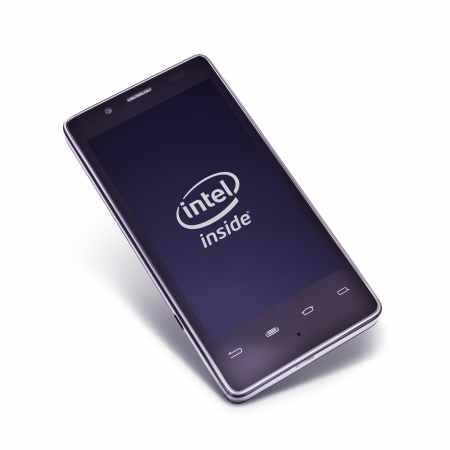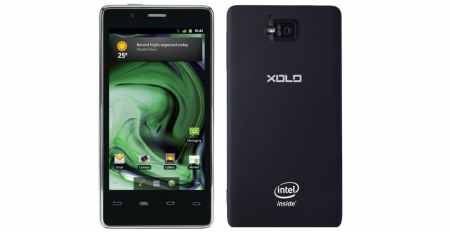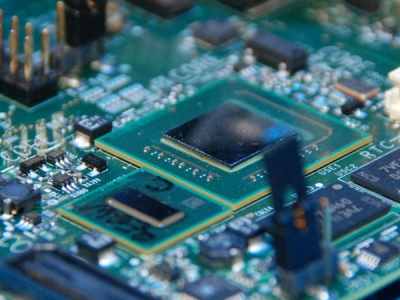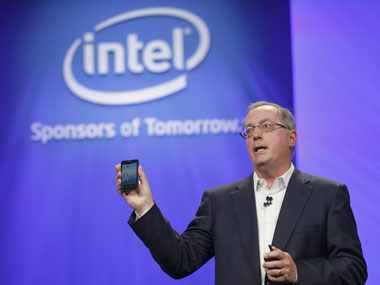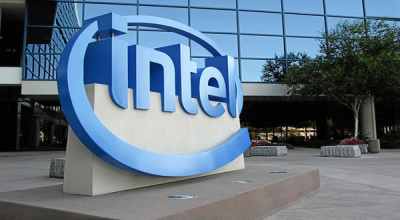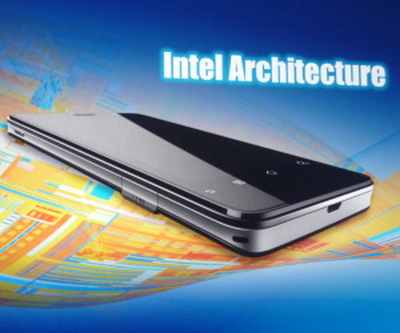 | « Back to article | Print this article |
Smartphones with Intel logo from April
The Intel Inside logo, which consumers have always seen on laptops and PCs, will now be seen on smartphones, too. In April, mobile vendor Lava International will launch its first smartphone in India based on the Intel processors, expected to be priced around Rs 25,000.
Lava, which began working with Intel nearly nine months ago, will launch a new brand of smartphones based on Intel's Atom processors. The first smartphone to hit the Indian market will be Xolo X900.
"We will launch a total of five smartphones based on Intel processors in this financial year and have already put together a separate sales and development team for brand Xolo within Lava," said S N Rai, co-founder and director, Lava International.
For Rediff Realtime News, click here
Click NEXT to read more...Smartphones with Intel logo from April
Rai is confident the company can sell about 10,000 smartphone units within the first few months of X900's launch.
"Lava's Intel-powered smartphone brand, we believe, can easily become a Rs 100-crore business within 12 months as the Indian smartphone market is hungry for devices," claimed Rai.
Xolo X900 features the Intel Atom Z2460 processor with hyperthreading technology that promises to reduce power consumption and boost multi-tasking on handsets. At launch, the device will feature Android 2.3 (Gingerbread version) with an upgrade to Android 4.0 (Ice Cream Sandwich) promised shortly after.
Click NEXT to read more...
Smartphones with Intel logo from April
Lava, informed Rai, is in talks with several Indian telecom operators to bundle data and content on the device at the time of the launch. Other OEM partners like Motorola Mobility and Lenovo, too, are building devices with Intel processors.
The silicon giant is eager to have its share in the mobile market and unveiled three processors at the Mobile World Congress in Barcelona. The Intel Atom Z series (earlier codenamed Medfield) includes a single core processor Z2460, dual-core Atom Z2580 and a low-cost Z2000 processor that is designed for emerging markets.
Debjani Ghosh, managing director (Sales and Marketing), Intel South Asia reiterated that Atom Z2000 processor will address the demands of lower priced handsets in the emerging markets.
Click NEXT to read more...
Smartphones with Intel logo from April
"The chip is a 1GHZ Atom computing processor unit and a modem that can run on 2G and 3G networks. We will begin sampling of Z2000 with our partners in the middle of this year and expect products in early 2013," she said.
India, accounting for approximately 12 per cent of worldwide sales, is an important market for Intel. Gartner estimates suggest that smartphone sales in India made up six per cent of total device sales in the first three quarters of 2011, and this share is expected to increase to eight per cent in 2012.
At a media briefing in Barcelona, Intel president and CEO, Paul Otellini highlighted plans to expand its smartphone System-on-Chip and communications product roadmaps for the performance and value- smartphone market segments.
Click NEXT to read more...
Smartphones with Intel logo from April
Intel, the market leader in PC processors, is betting heavily on the new Atom Z processors to revive its fortunes in the smartphone processor market, which is currently led by ARM.
Intel's latest 32-nanometer processor has one advantage over ARM's -- the CPU can run apps that would choke ARM processors.
"Therefore, Intel is likely to target the high-end market at first, since these users require superior performance," reasoned Strategy Analytics' Rahul Gupta.
Click NEXT to read more...
Smartphones with Intel logo from April
While Gupta does not see Lava-Intel partnership in India as a big game changer in the smartphone market, he listed, "If there was a bigger handset vendor like Nokia, Research in Motion or Samsung, then Intel would have probably been on to something. There's no compelling reason for the competition, Qualcomm or Texas Instruments, to worry about losing market share just now."
Lava, which has a multi-year, multi-product strategy with Intel, is developing both phones and tablets based on Intel architecture, that means there won't be any ARM devices from Lava soon.
"We have our hands full developing Intel powered devices and at least this year we don't see ourselves developing any ARM devices," said Rai.
